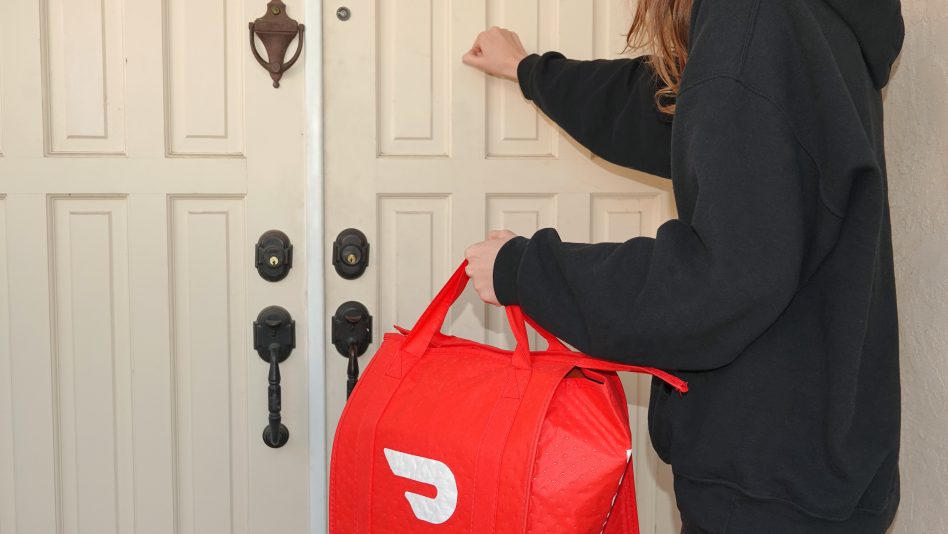
Image: Simone Hogan/Shutterstock
Instacart Addresses Disrespect and Rude Behavior toward Shoppers and Says Repeated Rulebreakers will be Banned from the App
Recently, the grocery-delivery app Instacart has become the biggest in the U.S. in terms of customers and sales. However, in April, it began issuing warnings to users who have been flagged by shoppers as troublemakers.
The email has warned customers not to abuse its shoppers in regards to items being out-of-stock, bad or misleading directions being given by users, or refusal to provide I.D. for buying alcohol. According to the company, users who repeatedly break these community guidelines will be kicked off the app.
Instacart currently has over 600,000 shoppers on its books and has said recently that tackling customer rudeness has been paramount for the Instacart department that oversees the welfare of its shoppers.
According to Instacart, after issuing these warning emails, accounts of rudeness reports have dropped by nearly 90%. The company has assured that rude behaviour is now reported on only a very low percentile of total orders, and overall feedback from both customers and shoppers has been more positive.
Arguments have continued to rise at the supermarket though, as people’s frustrations grow due to more shopping carts congesting the aisles and increased fender-benders being reported in parking lots.
The recent phenomena of delivery apps like Instacart, Door Dash, Uber Eats, and others are all contributing factors to customers and drivers being involved in an increased number of disputes both in stores and on the roads, according to experts.
To list some recent examples of complaints by Instacart users for the sake of context, one Instacart shopper was berated by a user who claimed that the pasta sauce they wanted must be in stock, even though it was clearly sold out on shelves.
Another customer recently complained that the two cans of black beans they ordered had massive dents in them. One Instacart user that started using the app after knee surgery reported that when their Instacart shopper arrived with their delivery, they said the tip received for the order wasn’t good enough as they had to carry the bags up three flights of stairs.
Another Instacart claimed their order arrived stinking like cigarettes. Several Instacart shoppers have said that some of their customers text nonstop while their orders are being filled, with questions on the freshness of bananas, of bread, or expiry dates, etc. Some users have even complained that package sizes have gotten smaller while prices have stayed the same or risen, almost implying that it is the Instacart shopper’s fault for the inflation.
One shopper described how when a lactose-free milk was out of stock, they picked up some whole milk instead per the customer’s approval as a substitute. However, a few minutes later the customer started sending multiple messages through Instacart’s app, berating the shopper for selecting the replacement they had approved just a few moments prior.
The Instacart shopper called Instacart’s service line and requested to cancel the order and then also blocked and reported the customer’s completely unnecessary misconduct. This shopper works for Instacart on a daily basis, sometimes putting in over 100 hours a week, and reported instances like this being a relatively common occurrence.
With over 127,000 members, Instacart’s Reddit page is quite the interesting place for reports such as these. One shopper recently revealed a story about one customer who insisted that an unsliced loaf of bread be sliced after the shopper has already driven out from the car park. In capital letters, the customer demanded that the shopper “GO BACK AND GET THE BREAD SLICED!!!”
Delivery rival, DoorDash has a zero-tolerance policy for harassment by workers and users, with violators being subject to reduced service or complete deactivation. DoorDash customers can also substitute or switch preferences, either before or during an order.
Earlier this year, Uber also made changes to its app in order to address shopper’s concerns over what they refer to as ‘pain points’, as well as out-of-stock items.

Image: Simone Hogan/Shutterstock
Instacart Addresses Disrespect and Rude Behavior toward Shoppers and Says Repeated Rulebreakers will be Banned from the App
Recently, the grocery-delivery app Instacart has become the biggest in the U.S. in terms of customers and sales. However, in April, it began issuing warnings to users who have been flagged by shoppers as troublemakers.
The email has warned customers not to abuse its shoppers in regards to items being out-of-stock, bad or misleading directions being given by users, or refusal to provide I.D. for buying alcohol. According to the company, users who repeatedly break these community guidelines will be kicked off the app.
Instacart currently has over 600,000 shoppers on its books and has said recently that tackling customer rudeness has been paramount for the Instacart department that oversees the welfare of its shoppers.
According to Instacart, after issuing these warning emails, accounts of rudeness reports have dropped by nearly 90%. The company has assured that rude behaviour is now reported on only a very low percentile of total orders, and overall feedback from both customers and shoppers has been more positive.
Arguments have continued to rise at the supermarket though, as people’s frustrations grow due to more shopping carts congesting the aisles and increased fender-benders being reported in parking lots.
The recent phenomena of delivery apps like Instacart, Door Dash, Uber Eats, and others are all contributing factors to customers and drivers being involved in an increased number of disputes both in stores and on the roads, according to experts.
To list some recent examples of complaints by Instacart users for the sake of context, one Instacart shopper was berated by a user who claimed that the pasta sauce they wanted must be in stock, even though it was clearly sold out on shelves.
Another customer recently complained that the two cans of black beans they ordered had massive dents in them. One Instacart user that started using the app after knee surgery reported that when their Instacart shopper arrived with their delivery, they said the tip received for the order wasn’t good enough as they had to carry the bags up three flights of stairs.
Another Instacart claimed their order arrived stinking like cigarettes. Several Instacart shoppers have said that some of their customers text nonstop while their orders are being filled, with questions on the freshness of bananas, of bread, or expiry dates, etc. Some users have even complained that package sizes have gotten smaller while prices have stayed the same or risen, almost implying that it is the Instacart shopper’s fault for the inflation.
One shopper described how when a lactose-free milk was out of stock, they picked up some whole milk instead per the customer’s approval as a substitute. However, a few minutes later the customer started sending multiple messages through Instacart’s app, berating the shopper for selecting the replacement they had approved just a few moments prior.
The Instacart shopper called Instacart’s service line and requested to cancel the order and then also blocked and reported the customer’s completely unnecessary misconduct. This shopper works for Instacart on a daily basis, sometimes putting in over 100 hours a week, and reported instances like this being a relatively common occurrence.
With over 127,000 members, Instacart’s Reddit page is quite the interesting place for reports such as these. One shopper recently revealed a story about one customer who insisted that an unsliced loaf of bread be sliced after the shopper has already driven out from the car park. In capital letters, the customer demanded that the shopper “GO BACK AND GET THE BREAD SLICED!!!”
Delivery rival, DoorDash has a zero-tolerance policy for harassment by workers and users, with violators being subject to reduced service or complete deactivation. DoorDash customers can also substitute or switch preferences, either before or during an order.
Earlier this year, Uber also made changes to its app in order to address shopper’s concerns over what they refer to as ‘pain points’, as well as out-of-stock items.



